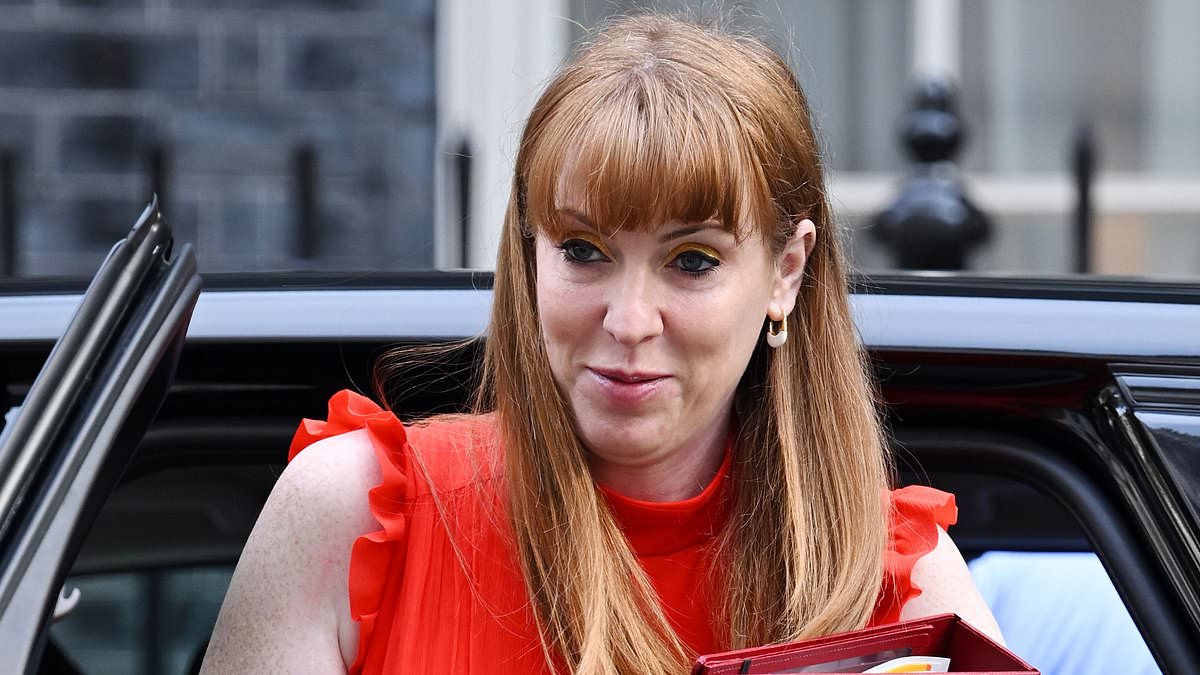Leading members of the Cabinet have had housing targets slashed in their own constituencies, despite a Government push to build hundreds of thousands of new homes in the rest of the country.
Deputy Prime Minister Angela Rayner told MPs this week that ‘we must all play our part’ in tackling the housing crisis, as she published new mandatory targets which will see housebuilding rise sevenfold in some areas.
Critics have warned that the targets, produced by a controversial computer algorithm, will lead to a public backlash in communities forced to take many more homes than they can cope with.
But analysis of the new figures reveals that many leading members of the Cabinet will have housing targets cut in their own constituencies.
In Camden, where Sir Keir Starmer is an MP, the annual target for new homes has been trimmed from 2,842 to 2,715.
In Redbridge, where health secretary Wes Streeting is an MP, the required number of homes has been slashed by more than a third from 3,682 a year to just 2,270.
Foreign secretary David Lammy will also see a sharp fall, with the annual target for new homes cut by a fifth from 3,431 to 2,716.
Outside London, work and pensions secretary Liz Kendall will see the target cut for Leicester slashed from 2.435 per year to just 1,690.
In Sheffield, where transport secretary Louise Haigh is an MP, the annual requirement has been cut from 3,036 to 2,667.
In Bristol, where Treasury chief secretary Darren Jones is an MP, the target has been trimmed from 3,378 to 3,057.
Housing minister Matthew Pennycook will see one of the biggest reductions in the country, with the target for new homes in Greenwich falling from 4,077 to 2,396 – a reduction of more than 40 per cent.
While some Cabinet ministers, such as Chancellor Rachel Reeves and education secretary Bridget Philipson, will see housing targets rise, the overall outcome for the Cabinet differs sharply from that of the shadow cabinet, where senior Tories face having to absorb huge numbers of additional new homes in their constituencies.
In North Yorkshire, where Rishi Sunak is an MP, the previous target to build 1,361 homes a year has been trebled to 4,232.
In shadow home secretary James Cleverly’s constituency in Braintree, Essex, the annual target has jumped by a quarter from 813 homes a year to 1,098.
In Waverley, in Surrey, where Jeremy Hunt is MP, the annual requirement has almost doubled from 710 to 1,374.
Shadow education secretary Damian Hinds see a similar rise in his East Hampshire constituency, where the annual target jumps from 575 to 1,074.
Ms Rayner admitted the changes were ‘not without controversy’ and acknowledged the algorithm meant that some areas would ‘get a surprising target’. But she said ‘no method is perfect’.
Overall, targets for Tory-run councils increased by an average of 43.3 per cent, while those for Labour authorities went up by an average 7.2 per cent.
Government sources denied that the new housing allocations were deliberately targeted at Tory areas, saying the algorithm was based on factors like demographics and affordability.
But critics said much of the distortion was due to a decision by ministers to scrap an ‘urban uplift’ imposed by the last government in a bid to ensure more homes were built on brownfield land and in big cities where demand is highest.
In London, where many senior Labour ministers are based, this has led to a reprieve for Labour mayor Sadiq Khan, who never came close to hitting the previous target to build almost 100,000 new homes a year in the capital. This has now been slashed by 20 per cent to 80,000, although this is still double the current building rate of 38,000 a year.
Ms Rayner’s department last night acknowledged that housing delivery under Mr Khan had ‘fallen well short of what is needed’ but said the new target had to be ‘credible’.
Mr Cleverly accused Ms Rayner of a politically motivated cop out, saying: ‘We need to build more homes in urban areas like London, massively increasing densification. Labour would rather concrete over the greenbelt than make Sadiq Khan do his job.’
Sam Richards, chief executive of pro-growth campaign group Britain Remade, said it was ‘a mistake’ to slash London’s housing target.
‘London has Britain’s most acute housing shortage, and cities across the world show that 100,000 homes per year can be done,’ he said.
But Ms Rayner described the previous London housing target as ‘arbitrary’ and ‘complete nonsense’.
She told MPs: ‘The target we’re now setting for London – roughly 80,000 – is still a huge ask but I know it’s one that the mayor is determined to rise to.’
